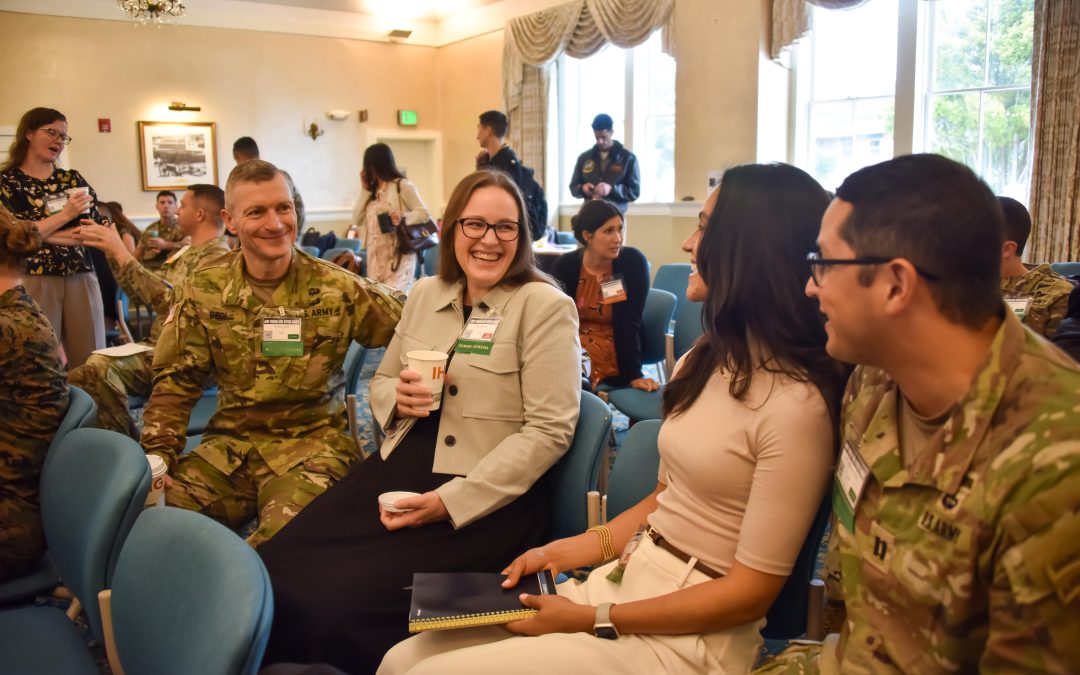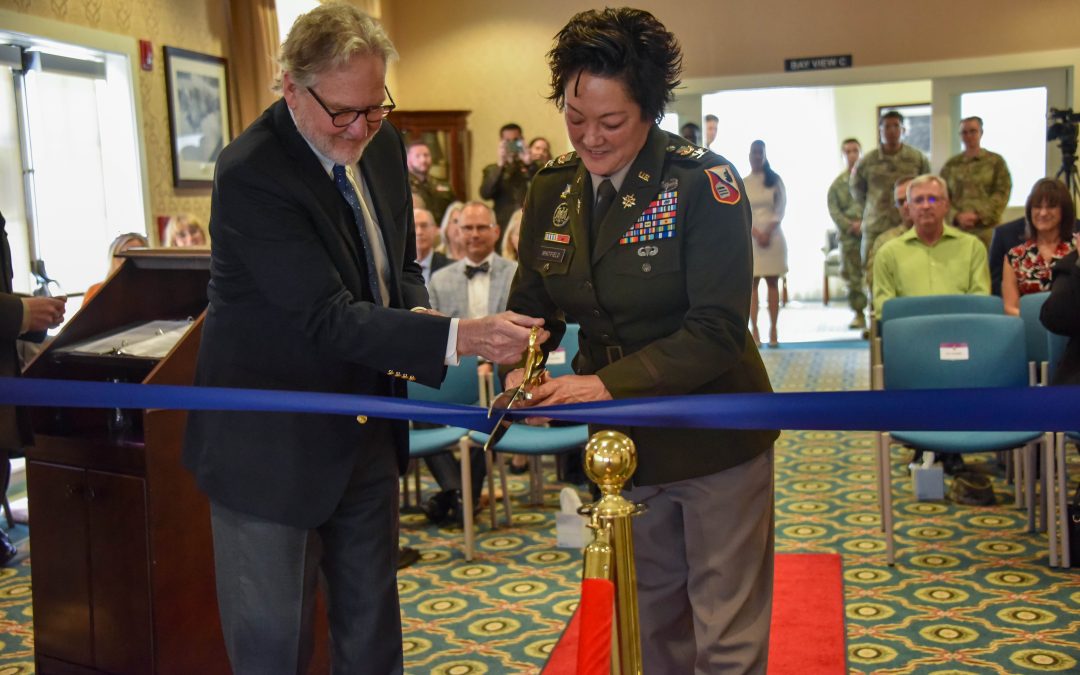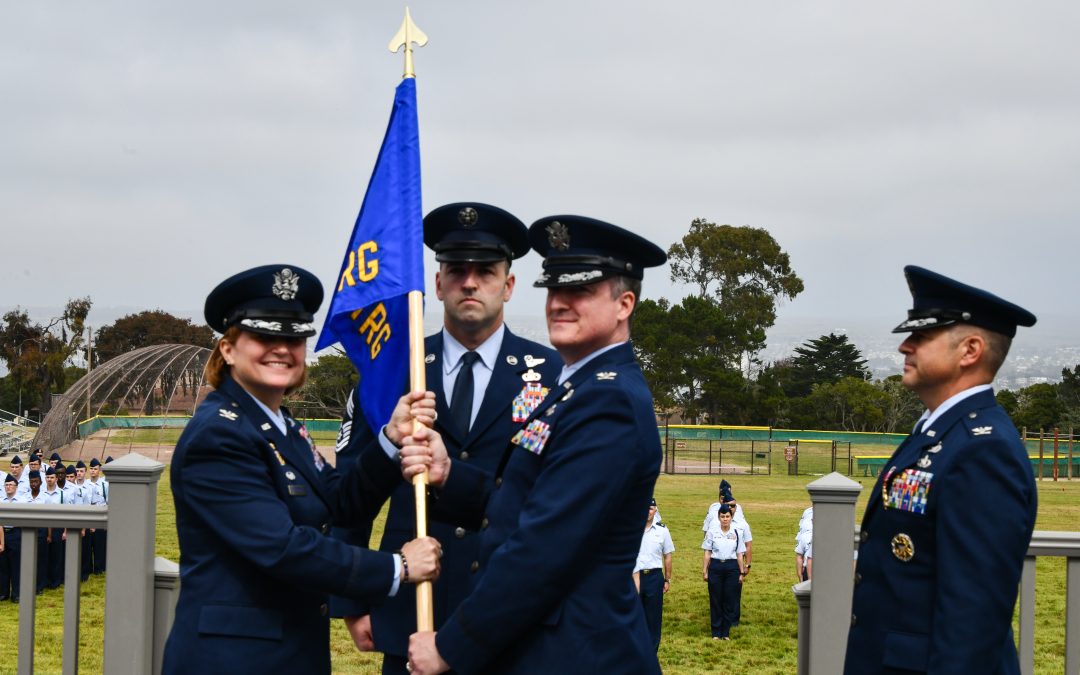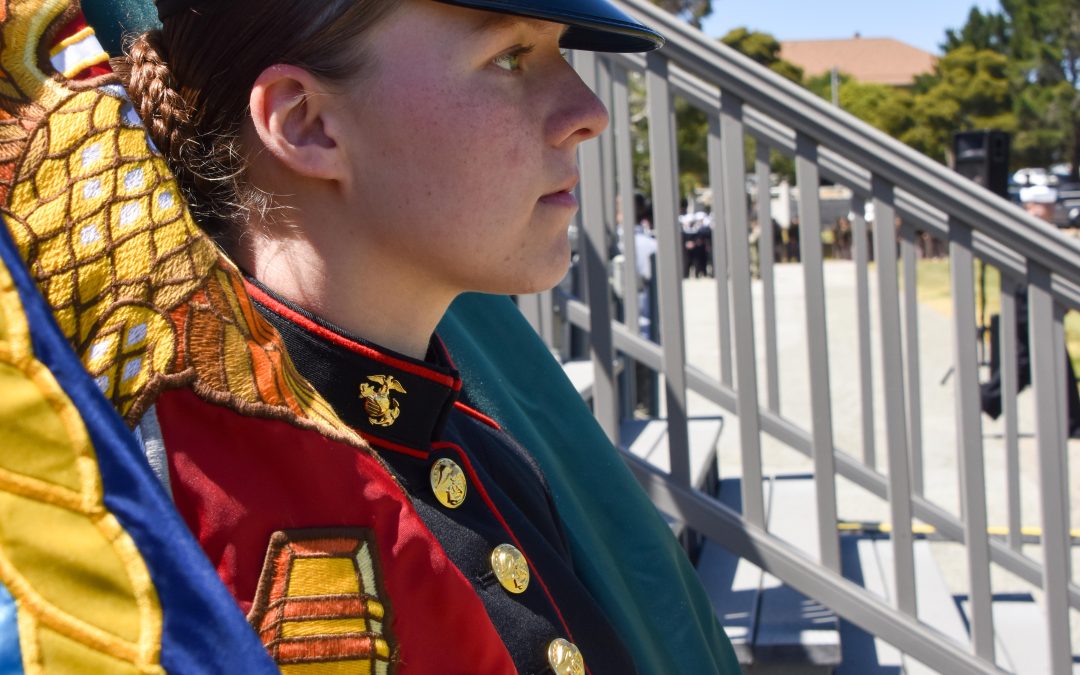Four students graduated from the Defense Threat Reduction Agency’s Interpreting Course for Russian language February 15, a high-level interpretation course only offered by the Defense Language Institute Foreign Language Center in Monterey, California.
The director of DTRA’s On-Site Inspection and Building Capacity Directorate, Mr. David Musgrave, welcomed the graduates to the organization for a challenging yet rewarding career among a small number of consecutive interpreters within the Department of Defense. A precondition for employment as a military interpreter with DTRA is successfully passing the course.
“Whether you are [working] in Russia, Europe, or in the United States as part of a team or alone, you have to be on your A game,” Musgrave told service members, who demonstrated a high degree of maturity and professionalism, in addition to outstanding language abilities, which are to qualify them for the coveted job.
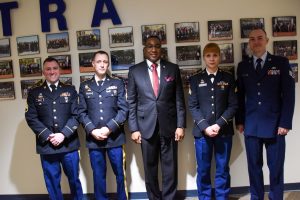
Graduates pose with the director of DTRA’s On-Site Inspection and Building Capacity Directorate, Mr. David Musgrave, who was guest speaker at the event.
“The most challenging thing for me was having to produce language. Speaking is much more difficult, you have to formulate your thoughts [first],” said Staff Sgt. Nicholas Voshall, who graduated with honors. “I am excited to start working with people at the strategic level.”
Service members can expect to work with delegations from many of the former Soviet Republics on missions to further U.S. national interests and relationships. Their primary duty will be to serve as representatives of the U.S. government as they interpret during inspections at facilities where nuclear capabilities or conventional forces are stored in order to ensure that treaty and agreement obligations are being fulfilled.
“I am grateful our skills can be used to serve our country,” said Sgt. Khrystyna Konareva. “I can’t wait to get out there,” she said with a broad smile.
“These particular students will be executing missions under the arms control treaties’ inspection responsibilities. They will be [working] across the former Soviet Republic states and also potentially in Russia when we implement our new historic treaty,” explained Musgrave.
Just a few months before the dissolution of the Soviet Union, a bilateral Strategic Arms Reduction Treaty was signed with the U.S. in July 1991. The treaty would be the most complex arms control treaty in history, designed to reduce and limit strategic offensive arms, immediately barring the signatories from possessing more than 6,000 nuclear warheads and some 1,600 delivery vehicles. START I expired on Dec. 5, 2009. Prior to the expiration, START II was signed in 1993, but never entered into force.
As a result of working relations and increasing partnerships between the two nations, the DLIFLC found itself increasingly tasked to teach Russian to higher levels of proficiency. In 2003, the Moscow Treaty was put into effect, leading the signing of the New START Treaty signed in 2010. This treaty was originally scheduled to expire in February 2021, but, by agreement between both parties, was extended to last until February 2026, at which time negotiations were expected to take place for its replacement.
Recent events however have put this into question, when Russia on Feb. 21, 2023, suspended its participation in the New START Treaty, but did not withdraw from it completely, clarifying that it would abide by the limits of the treaty.
(CTIC Jonathan Williams contributed to this article)

